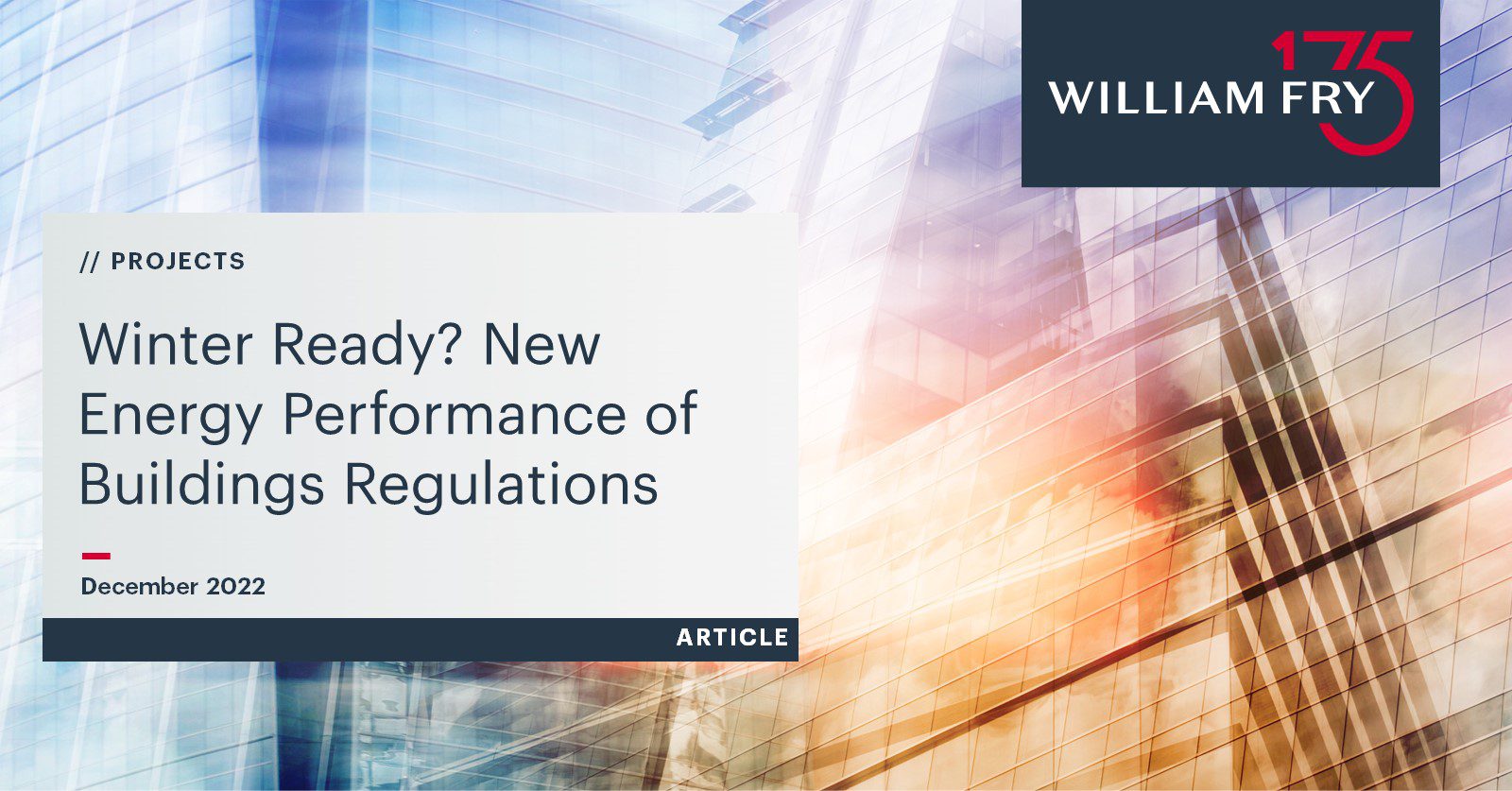In July 2022, the European Union (Energy Performance of Buildings) Regulations 2022 (the 2022 Regulations) were published.
The 2022 Regulations are the latest set of Irish legislative measures under the EU Directive on the energy performance of buildings (the EPBD).
Under the EPBD, EU Member States are required to provide for the regular inspection of the accessible parts of buildings’ heating and air-conditioning systems with an effective rated output of over 70kW. As an alternative to regular inspections, Member States may opt to provide advice to users for the replacement or modification of heating and air-conditioning systems and alternative solutions to assess the performance, efficiency and appropriate size of those systems, once the impact of such advisory measures is considered equivalent, in terms of impact, to the performance of inspections.
The 2022 Regulations confirm Ireland’s decision to opt for the provision of user advices in place of the performance of inspections of buildings’ heating and air-conditioning systems. Under the 2022 Regulations, the Sustainable Energy Authority of Ireland (the SEAI) is charged with the preparation and provision of advice to users.
The 2022 Regulations set down terms for such advices including:
- Heating Systems
The 2022 Regulations note that the SEAI shall provide advice to users concerning:
• replacement of heat generators;
• other modifications to heating systems or to systems for combined space heating and ventilation; and
• alternative solutions to assess efficiency and appropriate size of such systems. - Air Conditioning Systems
The 2022 Regulations require that the SEAI shall provide advice to users concerning:
• replacement of air-conditioning systems or systems for combined air-conditioning and ventilation;
• other modifications to air-conditioning systems or systems for combined air-conditioning and ventilation;
• alternative solutions to assess efficiency and appropriate size of such systems.
The 2022 Regulations highlight a continuously increasing focus on improving the energy efficiency and sustainability of buildings performance (other than dwellings) and reducing greenhouse gas emissions by boosting renovation obligations.
Existing rules for buildings’ energy performance
The 2022 Regulations are preceded by the European Union (Energy Performance of Buildings) Regulations 2021 (the 2021 Regulations) (see here for further details). The 2021 Regulations provide that existing buildings (other than a dwelling) must, before 31 December 2025, be equipped with a building automation and control system if the effective rated output in the building is over 290kW for (a) heating systems or systems for combined space heating and ventilation or (b) air conditioning systems or combined air-conditioning and ventilation. Self-regulating heat control devices must also be installed in new buildings and when replacing heat generator in existing buildings.
The 2021 Regulations are applicable in respect of works to (i) new buildings; (ii) existing buildings (other than a dwelling); and (iii) buildings which undergo major renovation (referenced in the 2019 Regulations as renovation where more than 25% of the surface envelope of the building undergoes renovation).
Prior to the publication of the 2022 Regulations and the 2021 Regulations, Irish legislation in the area of buildings’ energy performance included:
- the Building Regulations (Part L Amendment) Regulations 2017, which require buildings (other than dwellings) to be designed and constructed so as to ensure that the energy performance of the building limits the amount of energy required to operate it and reduce associated carbon dioxide emissions, in so far as practicable. These 2017 Regulations transposed EU requirements for nearly zero-energy buildings (NZEBs) and major renovations under Directive 2010/31/EU on the energy performance of buildings (recast) (the EPBD) and applied from 1 January 2019, subject to transitional arrangements (see here for further details), and
- the European Union (Energy Performance of Buildings) Regulations 2019 and the European Union (Energy Performance of Buildings) (No.2) Regulations 2019 which transposed amendments to the EPBD, after it was comprehensively updated in line with the EU’s evolving ESG aims (see here for further details).
While government guidance on how to apply the 2021 Regulations has been published (the Technical Guidance) no further guidance has been published in the context of the 2022 Regulations.
Next Steps
The 2022 Regulations creates additional requirements regarding SEAI advice to users concerning replacement or modification of heating, ventilation and air conditioning systems. It demonstrates the continued ESG focus of legislation in this area relevant to those acquiring, funding, managing or delivering refurbished or new commercial buildings and their contractual obligations.
Contact Us
For more information or advice on the projects and construction contracts requirements relating to the energy performance of buildings, please contact Cassandra Byrne, Jarleth Heneghan, Liam McCabe or your usual William Fry contact.




